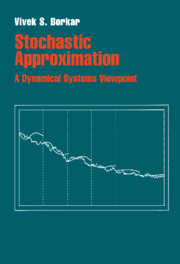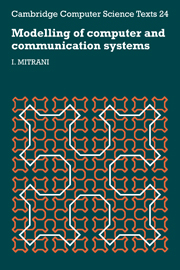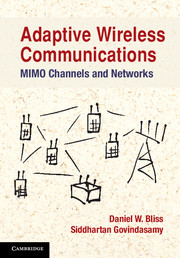Stochastic Approximation
This simple, compact toolkit for designing and analyzing stochastic approximation algorithms requires only basic literacy in probability and differential equations. Yet these algorithms have powerful applications in control and communications engineering, artificial intelligence and economic modelling. The dynamical systems viewpoint treats an algorithm as a noisy discretization of a limiting differential equation and argues that, under reasonable hypotheses, it tracks the asymptotic behaviour of the differential equation with probability one. The differential equation, which can usually be obtained by inspection, is easier to analyze. Novel topics include finite-time behaviour, multiple timescales and asynchronous implementation. There is a useful taxonomy of applications, with concrete examples from engineering and economics. Notably it covers variants of stochastic gradient-based optimization schemes, fixed-point solvers, which are commonplace in learning algorithms for approximate dynamic programming, and some models of collective behaviour. Three appendices give background on differential equations and probability.
- Simple, compact, cohesive
- Motivated by modern applications and implementation
- Discussion of current topics: finite-time behaviour, multiple timescales, asynchronous implementation
Reviews & endorsements
"I highly recommend it to all readers interested in the theory of recursive algorithms and its applications in practice."
Oleg N. Granichin, Mathematical Reviews
Product details
September 2008Hardback
9780521515924
176 pages
233 × 157 × 17 mm
0.38kg
Available
Table of Contents
- Preface
- 1. Introduction
- 2. Basic convergence analysis
- 3. Stability criteria
- 4. Lock-in probability
- 5. Stochastic recursive inclusions
- 6. Multiple timescales
- 7. Asynchronous schemes
- 8. A limit theorem for fluctuations
- 9. Constant stepsize algorithms
- 10. Applications
- 11. Appendices
- References
- Index.







